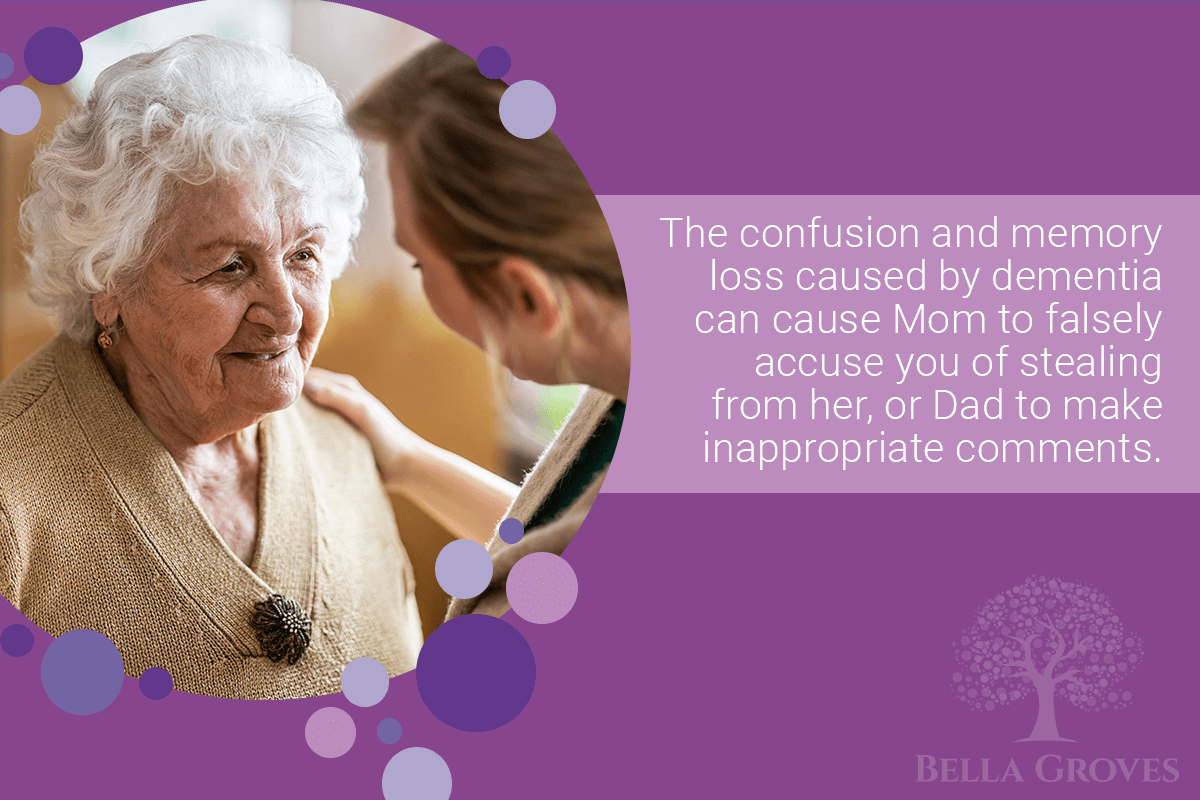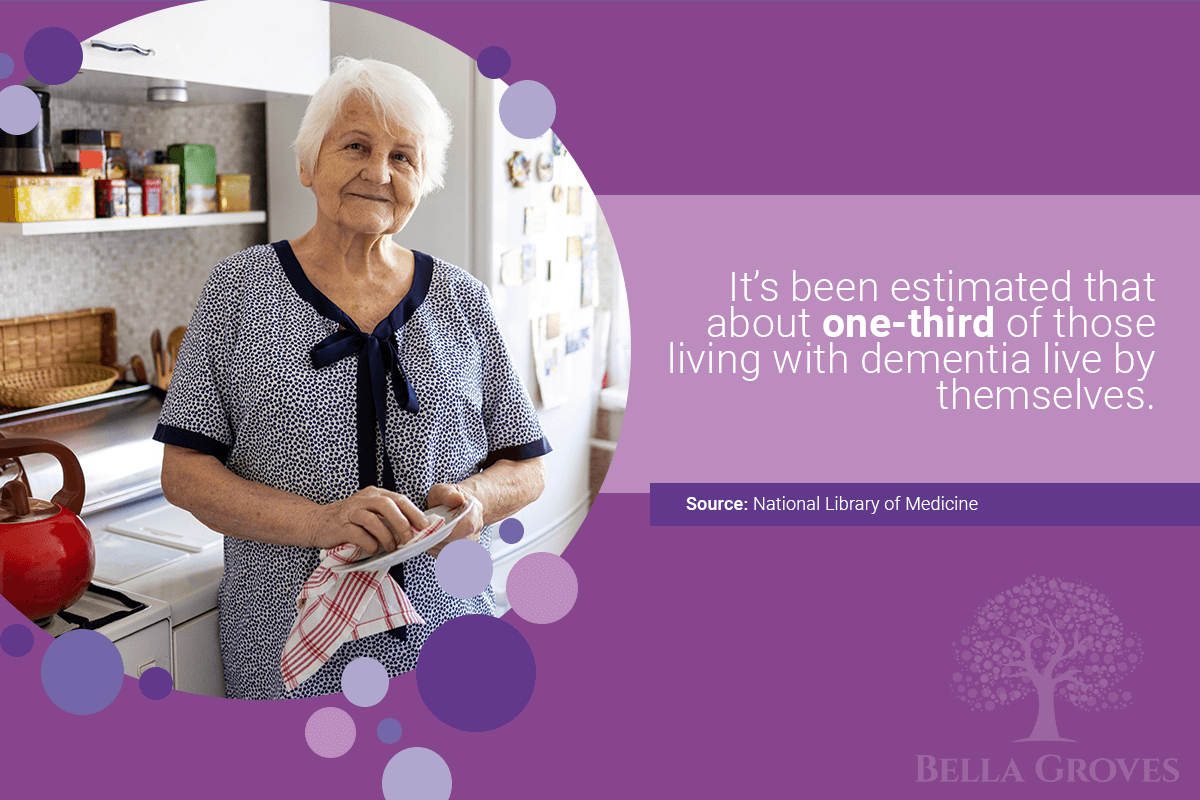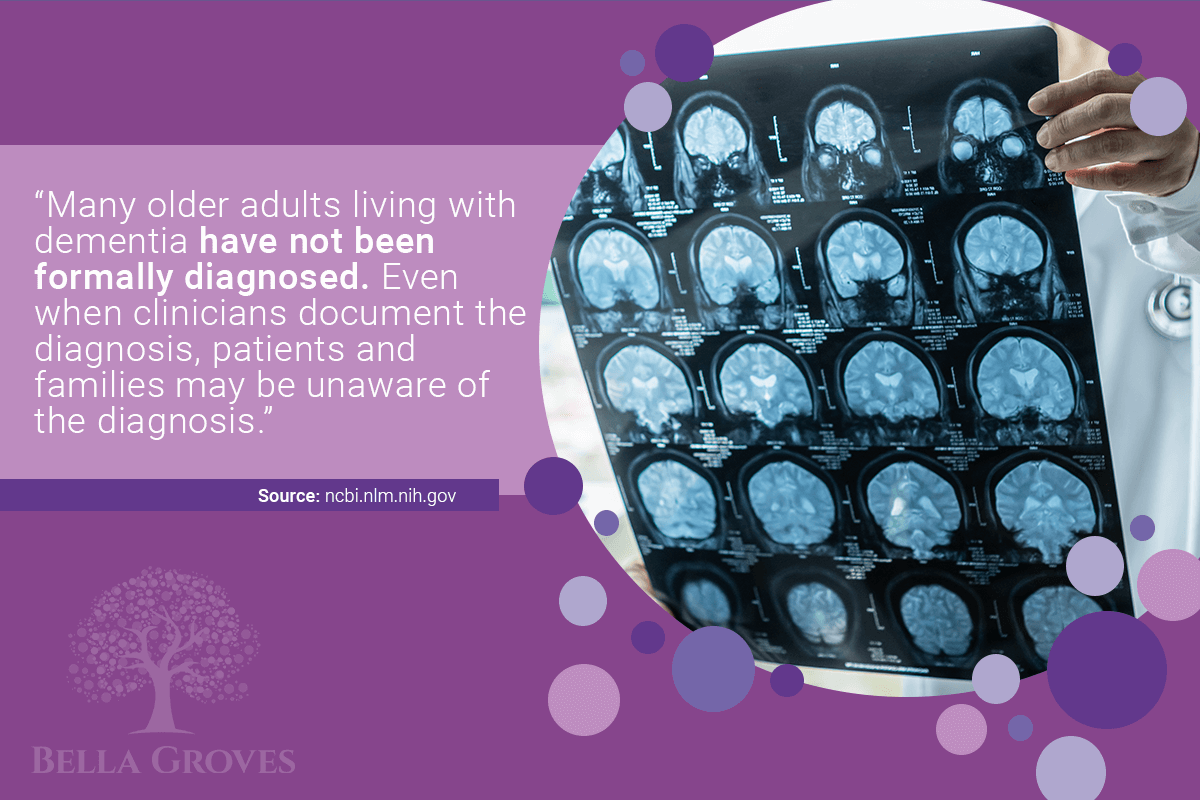
“I Want to Go Home:” Navigating Dementia & Responding to These Statements
As dementia progresses, the hippocampal region is one of the first areas affected – the part of the brain that orients us to our surroundings and keeps track of our timelines. As a result of this damage, a person living with dementia may experience difficulties remembering the timeline of their life, knowing where they are, or even the layout of their own home.
If you’re caring for someone living with dementia, you might have heard statements like “I’m late for work” when they haven’t worked in years or “I want to go home” when they already are. Not only can these be heartbreaking situations, but it can be challenging to know how to respond.
At Bella Groves, our team offers dementia education programs to help individuals and their families at every stage of their journey. Navigating dementia can be difficult, but with us by your side, you’ll never have to walk alone.
If your loved one has become increasingly confused about their surroundings or make statements that cause concern, here are some tips for responding.
Avoid Arguments
Think for a moment about the word “home” and all of its meanings. For many people, home isn’t a specific place but a feeling; surrounded by loved ones, enjoying the company of friends, or maybe even just the thought of a special memory.
Home represents a comfortable and happy environment, so it’s essential to understand that when a person living with dementia demands to “go home,” they might not be referring to a specific house or place but a time when they felt secure and content.
In the moment, if they don’t recognize their current environment as their home, don’t argue with them or make them feel further frustrated. It may seem natural to respond with “You’re already home,” but that can lead to further confusion and agitation. Instead, ask questions or redirect the conversation in a calming, natural way.
Divert the Conversation
Sometimes, the best way to handle this situation is to implement the following steps: agree, redirect, and distract. After they express their wishes to go home, validate their feelings by saying something like:
- “I understand. We’ll go back home soon.”
Then, redirect the conversation to a different topic to provide a comforting distraction. There are several ways that you can go about this. For instance, after assuring your loved one that you’ll be able to take them home soon, you can add:
- “We’ll go as soon as I finish cleaning the kitchen. What is the first thing you’re going to do when you get home?”
The second sentence can then naturally distract. For instance, if they reply with, “Oh, I would be watching a movie,” you can suggest that you do it together in that moment. This puts them in charge of the narrative and creates a way to naturally shift the conversation and tone.
Promote Safety & Positivity
Remember that with the deterioration of the brain’s hippocampal region, it can become more challenging for a person living with dementia to be aware of their orientation; they may not know where they are in the moment, which can be a frightening and confusing experience.
Let your loved one know they are safe where they are through kind words and, if you feel it’s appropriate or will be taken well, through soft touches, like holding their hand or touching their arm.
Don’t remind them they are already home or explain that they have moved (if applicable), as this can create more fear of the unknown. Instead, use kind affirmations to reassure them that they are in a safe place where they are being cared for.
Navigating dementia, especially during difficult and uncomfortable situations, can be challenging. Bella Groves’ mission is to ensure you and your family that our team is here to provide the dementia education resources, support, and care you need to experience unconditional joy.
Our service levels meet you where you are and provide the knowledge, tools, and support you need to find success and create unconditional joy. Dementia will progress; we’re here to progress with you.
If you have questions about your dementia care journey, we invite you to call us at (830) 323-0440 or email us at hello@bellagroves.com.


